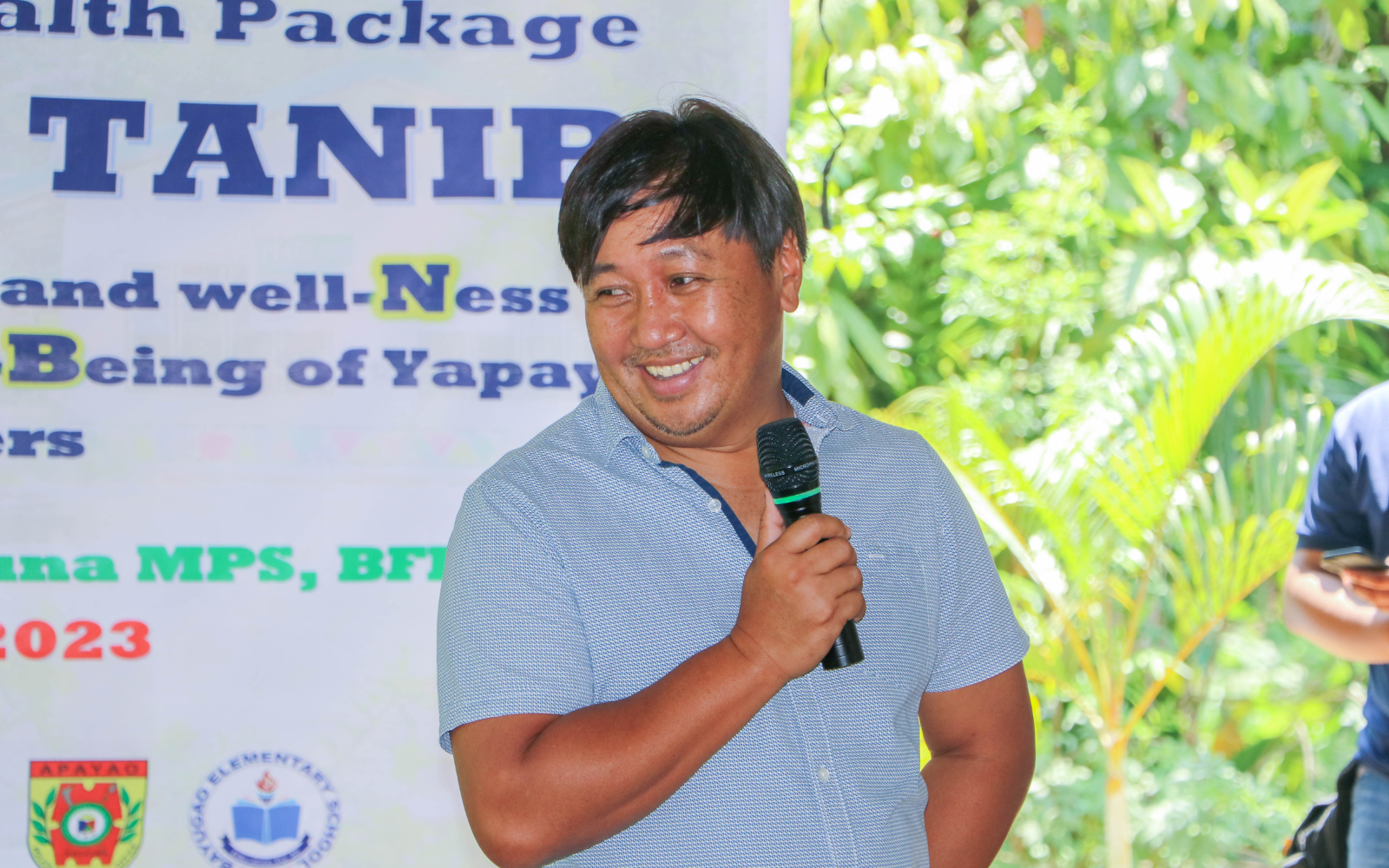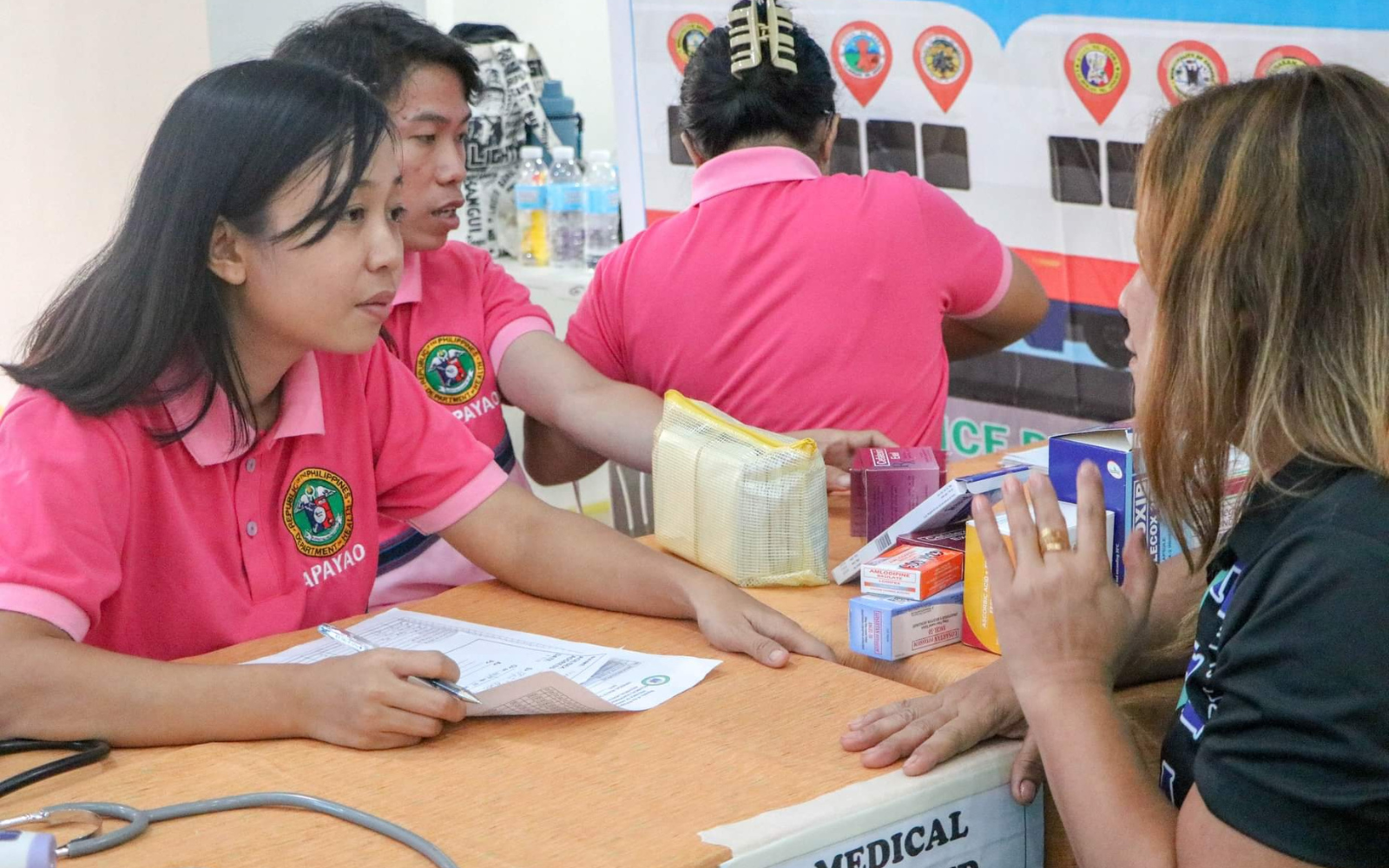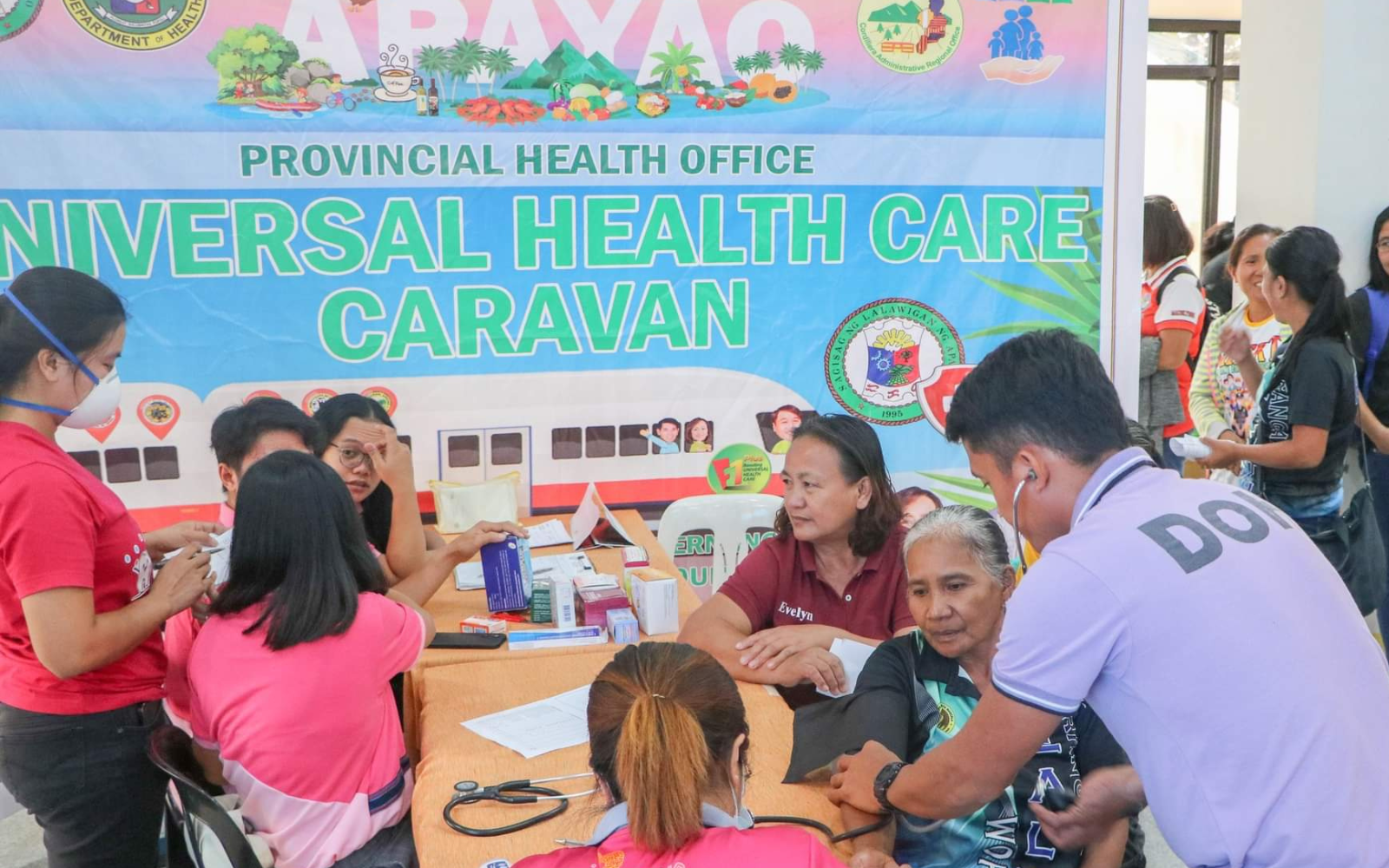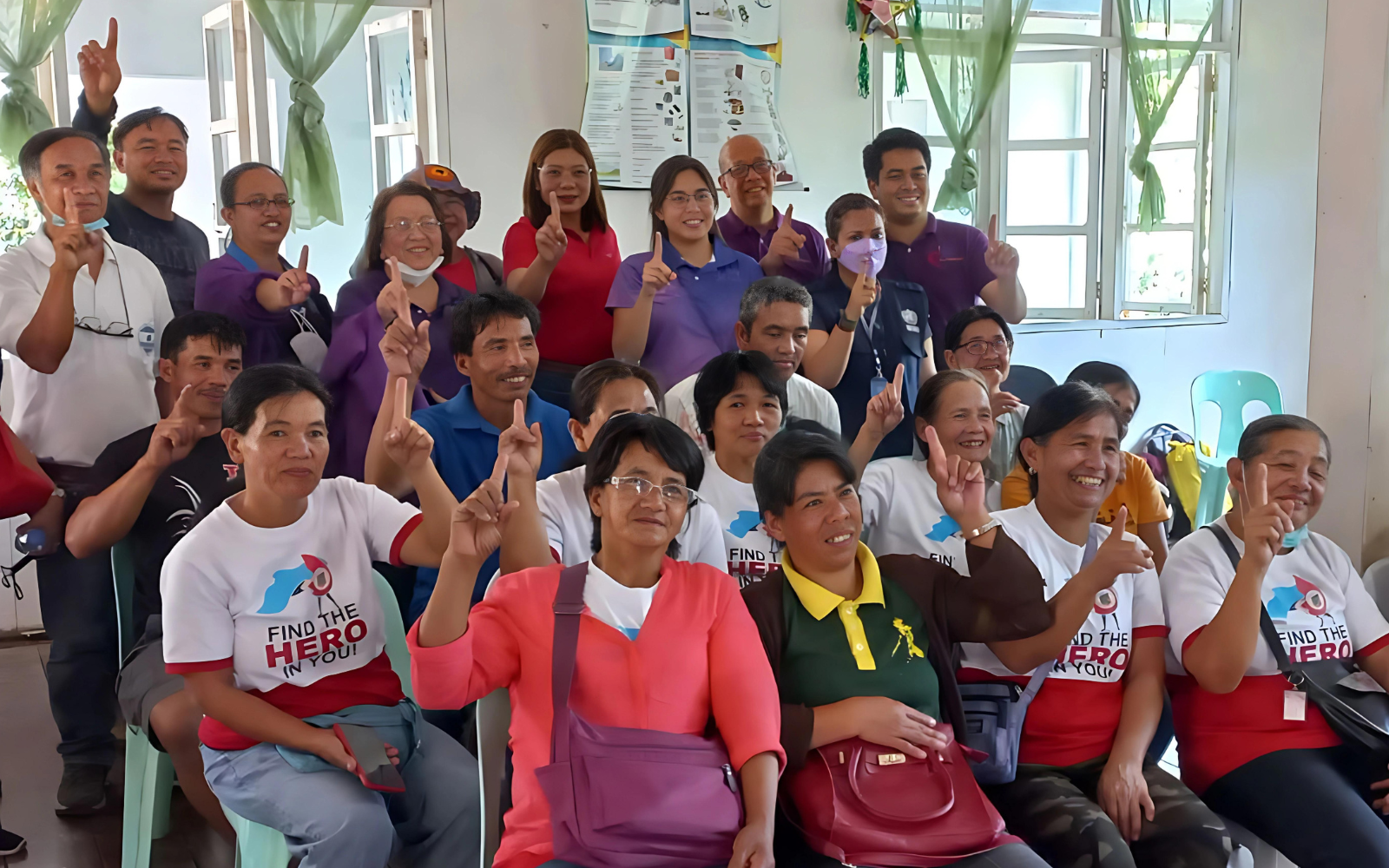Leading the Change: Governor Bulut’s Journey Towards Universal Health Care in Apayao
In 2022, the province of Apayao became among the last Universal Health Care implementation sites (UIS) in the Cordillera Administrative Region (CAR). Nonetheless, the province swiftly completed all preparatory requirements in the first quarter of the following year. By the end of 2023, it had achieved 61.1% of organizational and 30% of functional level requirements.
Much of the progress may be owed to the proactive leadership of Governor Elias C. Bulut Jr., who enjoyed abundant support from the Department of Health (DOH) regional office. DOH-CAR enrolled provincial health leaders to the University of the Philippines Manila for the Provincial Leadership Development Program (PLDP), which is among the courses under the Zuellig Family Foundation’s Bayang Malusog health leadership programs.

A seasoned politician, Bulut successfully convened and persuaded all seven municipal mayors to actively participate in realizing UHC. He provided clear direction and ensured agreement among his provincial health team on their respective deliverables, facilitating rapid progress under the province’s banner project called BUTSY (Bringing Universal health care services Towards a Sustainable program implementation Yielding to a resilient Apayao).
Bulut was also cognizant of the fact that health is a social issue so it is vital to address social determinants to ensure sustainability. As an initiative, his administration institutionalized mechanisms to provide livelihood projects, educational and medical assistance to Iyapayaos through the ASENG (Apayao Socio-Economic Efforts Necessary for Growth) Program. In fact, its sub-program, the ASAP (Apayao Student Assistance Program), envisions each Iyapayao household to produce at least one professional. Through these projects, Bulut hopes for a sustainable improvement in the overall well-being of every Iyapayao.
Demonstrating accountability for his province’s health outcomes, Bulut promptly acknowledged their shortcomings when questioned about the increase in maternal mortality ratio (253 in 2023 from 68 in 2019) and significant decline in child immunization rate (16% in 2023 from 71% in 2019). However, he possessed a clear understanding of necessary actions.
Bulut prioritized human resources, allocating a supplemental budget to fill critical positions in the provincial health office (PHO), which is ably headed by Dr. Mark Joleen Calban, the provincial health officer.

They now boast a senior officer each for surveillance and public health units. Additionally, they appointed a head for the health promotion section, crucial for realizing Bulut’s vision of educating and fostering acceptance of medical services and health programs among the province’s population, which includes over 50% indigenous peoples. This aims to reduce unskilled home deliveries, irregular checkups, and vaccine hesitancy.
Recognizing the important role of the Barangay Nutrition Scholars (BNS) and Barangay Health Workers (BHWs) as health educators and workers on the ground, Bulut spearheaded the institutionalization of incentive mechanisms for them. For 2023 alone, the province allocated at least 4.5 million pesos as cash incentives for all accredited BNSs and BWHs on top of the 1.2 million pesos worth of kits.
Efforts were intensified to train health workers in service delivery, promotion, and supply chain management. There was a challenge to extend services to 54 hard-to-reach villages but the provincial government incentivized doctors and specialists to serve in extension clinics by offering higher daily per diems and free board and lodging. Although Apayao’s doctor-to-population ratio currently stands at 1:9567, contractual physicians stand to alleviate the health burden.

Before the end of 2023, Bulut also approved the 5-year Health Facility Development Plan for the 5 provincially-operated infirmaries amounting to almost half a billion pesos covering personnel services, training needs, equipment, and infrastructure. He also envisioned these facilities to each have add-on specialty services such as Dialysis Center, Radiologic and Imaging, Upgraded Maternal, Neonatal and Child Health, and Drug Testing Laboratory. This is on top of the upgrading of the 2 infirmaries to level 1 hospitals, one for Lower Apayao and one for Upper Apayao.
In 2024, the PHO plans to recruit an information analyst and a senior program officer for planning. They are also considering hiring a senior program officer for supply chain management to oversee the recently centralized procurement system that has prevented medicine stock outs across their seven facilities, comprising two level-2 hospitals and five infirmaries. Consignment arrangements for drug supply are also being explored.
Despite the province’s significant strides, Apayao’s health team remains vigilant, recognizing the need for further dialogue with local health leaders to refine the patient referral system to align with UHC requirements. They must also address the persistent issues of teenage pregnancy and malnutrition, acknowledging that their solutions extend beyond the health sector.
With unwavering commitment, strategic foresight, and invaluable coaching support from DOH’s Charlyn Tagabing, Governor Bulut is poised to see his people enjoying the benefits of UHC sooner than expected.

Regional Health Triumph: Dr. Sydiongco’s Leadership in Action
She’s driven by a singular mission: to grant Filipinos unfettered access to quality healthcare services. With unwavering determination, she ensures that her fellow leaders and teammates walk alongside her on this transformative journey.
Dr. Paula Paz Sydiongco, the Regional Director of the Department of Health (DOH)-Ilocos, seized an opportunity to engage with governors and the city mayor in the Ilocos Region to advance Universal Health Care (UHC) through the Bayang Malusog leadership training program by the Zuellig Family Foundation (ZFF). She capitalized on this opportunity through sustained meetings, courtesy calls, and coaching sessions with local chief executives. Additionally, she has been conducting regular technical working group sessions with provincial health officials and inter-agency cluster meetings for her team at the Ilocos Region Center for Health Development (CHD).
The result is a shared commitment to expedite the fulfillment of all UHC requirements. In 2023, the UHC maturity level in all UHC implementation sites (UIS) improved from the previous year. The provinces of Ilocos Sur, Ilocos Norte, La Union, Pangasinan, and Dagupan City have reached 100% of the preparatory level key result areas. At the organizational level, the accomplishment of the five sites ranged from 72 to 86%, while at the functional level, Region 1 UIS attainment was between 25 and 70% of KRAs.
Sydiongco is encouraged by the governors’ receptiveness to her advice and has provided tangible support by augmenting the provinces’ necessary health personnel and offering financial grants to enhance health facilities. She acknowledges the need for improvements in maternal and child care outcomes. The region’s maternal mortality ratio, at 52, is below the country’s target of 90 but infant mortality rate, at 20, is above the national target of 15.

To address preventable maternal and infant deaths, she advocates for Basic Emergency Obstetric and Newborn Care (BEmONC) training and organized supportive supervision to enhance skills in caring for pregnant women and babies, investigating causes of deaths, and implementing interventions to address underlying issues.
Sydiongco empowers her staff to work towards UHC by providing necessary skills through training, mentoring, and coaching, supported by various programs of the ZFF. Regular monitoring of indicators, outcomes, and developments allows her team to share evidence-based information, earning the trust and confidence of provincial and city leaders.
Having weathered various natural disasters, including the impact of super typhoon Haiyan in the Eastern Visayas region during her tenure as assistant regional director, Sydiongco prioritizes accountability for outcomes and engaging stakeholders effectively given the various organizations she had to face and work with after Haiyan. With the government’s emphasis on establishing more Bagong Urgent Care and Ambulatory Centers (BUCAS) Centers, she recognizes the need to enhance her management skills, acknowledging her ongoing learning process as a Regional Director.
Sydiongco’s commitment to self-improvement despite regional successes signifies promising prospects for the area. Her dedication echoes the resounding call of “Region 1 Number 1 (sa Kalusugan)”, ensuring that excellence remains the guiding beacon for healthcare in the region.

WHY WORK AT ZFF?
Zuellig Family Foundation (ZFF) provides a competitive compensation package, a hybrid work arrangement, customized training and development program, and more.
ZFF offers a competitive benefits package:
• Hybrid work arrangement
• 30 days incentive leave (combination of vacation and medical/ sickness leaves), plus 5 emergency leaves
• Annual Physical Examination leave
• HMO and Life Accident insurance coverage
• Customized training and development (synchronous and virtual instructor-led training)
• Monthly communication/ internet allowance
• Annual clothing allowance
• Semestral Inflation-based Financial Aid
INTERNSHIP PROGRAM
The Zuellig Family Foundation (ZFF) Internship program provides a training ground for students looking to deepen understanding of work in the public health sector and non-profit organization processes. The program, relaunched in 2021, has produced 3 full-time employees who started out as interns in the organization.
ZFF opens opportunities for students enrolled in the following courses:
Human Resources Intern: BS Psychology/ Human Resources Development Management /other courses related to Human Resources
Corporate Communications Intern: Public Relations/ Communications/ Journalism or any related courses
Management Information System Intern: Computer Engineer or any related courses
Finance Intern: Financial Management/ Accounting or any business related courses
Portfolio Management Intern: Health or Public Health-related courses
INTERNSHIP PROGRAM
The Zuellig Family Foundation (ZFF) Internship program provides a training ground for students looking to deepen understanding of work in the public health sector and non-profit organization processes. The program, relaunched in 2021, has produced 3 full-time employees who started out as interns in the organization.
The following units are currently accepting interns:
• Human Resources
• Admin
• Finance
• Management Information Systems
• ZFF Institute
• LHS Portfolio
• Nutrition Portfolio
• The Challenge Initiative
Submit applications by emailing hr@zuelligfoudation.org or hrrecruitment.zff@gmail.com.